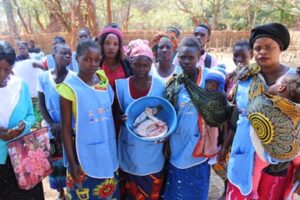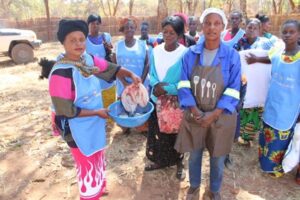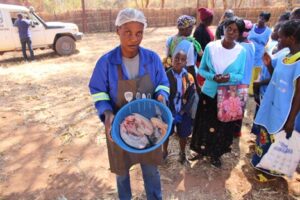
Elimination of child stunting in communities is the primary objective of the scaling up nutrition 1st 1000 most critical days program II (SUN MCDP II).
Taking a multisectoral approach, SUN MCDP II has identified Social Behavior Change Communication (SBCC) as a key intervention in reducing stunting in communities.
This is being done through establishing Nutrition Support Groups (NSGs) in communities who are trained to provide necessary nutritional information within their localities.
In Chibwika ward of Mwinilunga district, NSG groups have since been trained and equipped with knowledge on food preparation, processing and preservation aimed at promoting consumption of fish and fish products.
Speaking during a training of twenty-two (22) community based volunteers (CBVs) conducted by the Ministry of Fisheries and Livestock, Cynthia Muhemba a Nutrition Support Group promoter expressed gratitude with the training saying it has enlightened her on other alternative ways of consuming fish.
“The knowledge we have acquired will help us as well as the communities we are going to pass on this information to prepare, preserve and store fish in a much better way” She said.
Mrs. Muhemba said through this training her together with fellow volunteers she has discovered other edible products from fish such as oil, calcium and fish fillet which are equally of high nutrition value.
She expressed confidence that people in her community will embrace the knowledge and begin to use it in feeding their children with healthier diets.
And Juliet Kawang’u described the training as an eye opener on various ways of how foods such as fresh fish can be properly preserve and stored by rural people who may not have storage facilities like fridges.
“These methods are important in that when there is a fish ban on our rivers, we would still have some fish stored away for consumption”.
Mrs. Kawang’u said as a community-based volunteer she will sensitize pregnant and lactating mothers on how to prepare, preserve and store fish so that they can have access to fish and fish products in times when there may be scarcity of fish.




